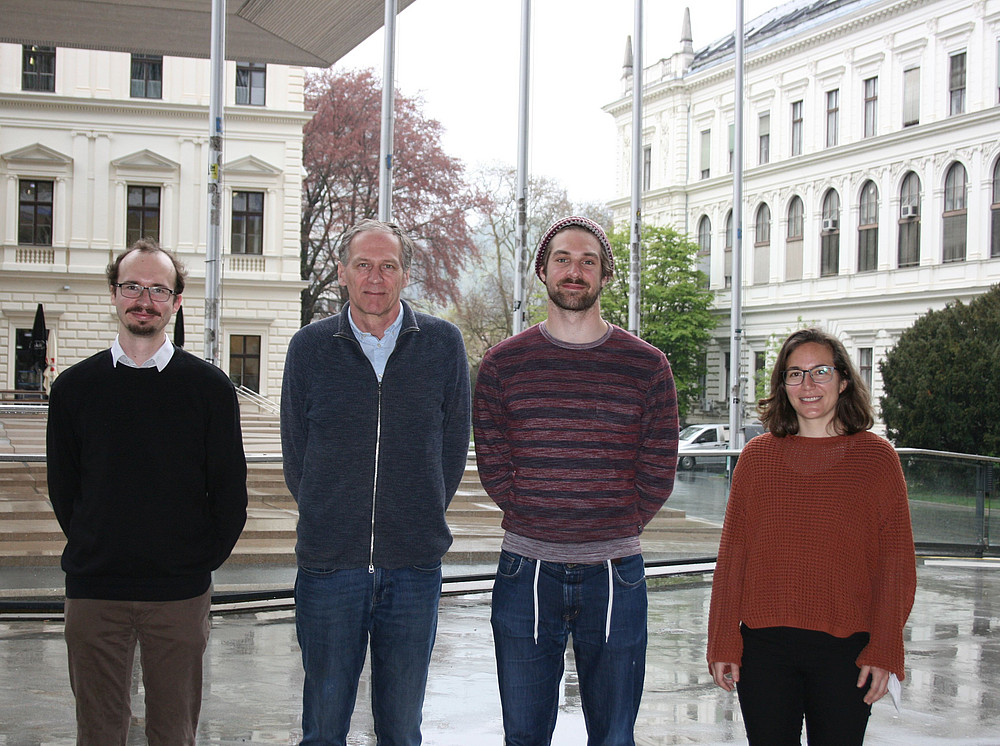Research area
Focus
The Covid-19 pandemic has raised awareness among the general public about the importance of epidemiological models in predicting the spread of infectious diseases and estimating the economic consequences. A particularly well-suited method for this is the application of so-called Agent-based models. These computer simulations are firmly established in epidemiology and are increasingly being used in economics. However, in the intersection of the two disciplines, known as economic epidemiology, they are still underrepresented. One of these few approaches, titled "COVID-Town," was developed by Patrick Mellacher at the Graz Schumpeter Centre at the University of Graz. This model allows for the simultaneous simulation of the economic and epidemiological consequences of the Coronavirus under various policy scenarios, with a particular focus on the heterogeneity of the population in terms of their economic, social, and epidemiological characteristics. In this project, Agent-based models are being developed and applied to new research questions: How does a more complex modeling of epidemiological dynamics affect policy recommendations? What are the consequences and dynamics of so-called COVID skepticism? What socio-economic consequences of the crisis can be expected for different population groups, especially with regards to the situation of women, in the short and long term?

Work packages
How do the insights regarding the economic and epidemiological impacts change when we increase the complexity in modeling the spread dynamics of the virus and the containment measures?
This work package examines the economic and epidemiological impacts of various policy measures to contain the coronavirus, such as contact tracing or lockdowns. The model implements various forms of contact tracing or location-based tracing and examines their costs and benefits. Furthermore, different lockdown designs can be compared, and an optimal lockdown timing can be determined.
Symptoms associated with COVID-19 can also be caused by other diseases, particularly common colds and the seasonal flu. The complex effects of the simultaneous spread of a second virus are also part of this work package. This includes the interactions between the two viruses as well as the efficiency of testing and isolation strategies based on hypotheses about potential substitutive or complementary relationships between lockdown measures and targeted testing for the two viruses.
How do the political and economic dynamics related to lockdown fatigue and COVID skepticism influence the effectiveness of containment measures?
In this work package, we are examining the impact of lockdown fatigue and COVID skepticism, i.e., the non-compliance with containment measures, and their political and economic consequences. We can build upon a SIR-based analysis by Patrick Mellacher regarding the influence of the proportion of a less cooperative group and the mixing patterns between the less cooperative and a highly cooperative group and expand upon it. Agent-based modeling enables the consideration of a high level of complexity in the relationships and heterogeneity of the agents, for example, regarding their social status or their influence network.
After studying the effects of a fixed subpopulation of COVID skeptics, we will develop a dynamic model in which COVID skeptics can engage in discussions with other agents and persuade them (or be persuaded themselves). For this purpose, we use a so-called "Opinion Dynamics" model, which we combine in an extended and adapted form with the epidemiological model.
What (unequal) socio-economic impacts can be expected on different population groups, particularly on women?
Previous empirical studies document the following: a) Job losses vary significantly across different sectors, and b) within sectors, individuals who can work from home are more likely to retain their jobs, c) women dedicate significantly more time than men to childcare and homeschooling, and d) in the US and the UK, women have a higher risk of losing their jobs, but not in Germany. This suggests that certain population groups have been significantly more affected by the consequences of the pandemic and that the design of policy measures contributes to whether inequalities are exacerbated or reduced.
This work package leverages the strengths of agent-based modeling, which allows for a high degree of heterogeneity among the modeled individuals. This enables the specific examination of the pandemic's impacts and the policy measures deployed on various population groups.